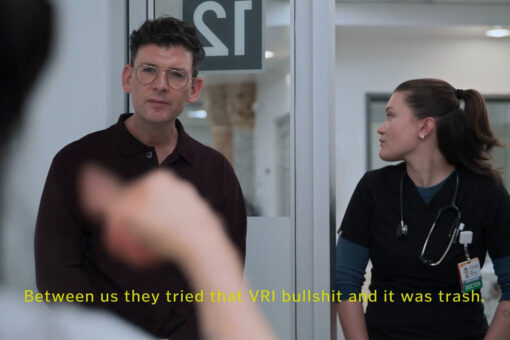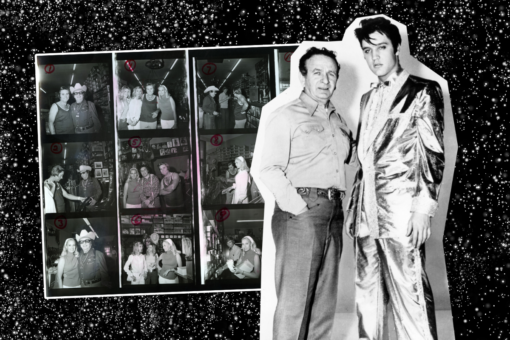What was the first prayer you ever made?
For me, prayer came before I ever had a sense of God, and long before I was exposed to organized religion. It happened in September 1995. I remember because I was 8 years old and had just started third grade. By then, I was a year into living in undocumented status with my parents in Brooklyn. In the preceding year, I had gone from being just another kid in China who fit in and had everything she wanted to becoming the illiterate immigrant who attended school hungry. Overnight, I found myself a child who watched her dignified, educated mother slump over the sweatshop sewing machine to earn pennies per article of clothing; the one who had racial slurs thrown at her in public; she who, in relentless conviction that she was “illegal,” pivoted each time she saw a uniformed person on the streets.
My parents and I had made our home in a single room, which we filled with furniture we found among the trash lining the sidewalk. We shared our kitchen and bathroom with a rotating carousel of roommates, all of them new immigrants just like us. On the evening when I found prayer — or more accurately, prayer found me — I had locked myself in the shared bathroom. I had developed a fondness for doing so in the preceding year, because it was the only way (our roommates’ knocks on the door aside) I was able to secure true privacy.
On that day I sat, as I always did, on top of the toilet lid. Often I brought a book — usually the latest installment of “The Baby-Sitters Club” — but on that day I was alone, my hands cupping my sad, tear-worn face. My parents, the only two people I had to rely on in the entire western hemisphere, were fighting again. They had started doing this more and more in our new country, where it seemed that no matter how quickly we moved, we could never outrun our dark loneliness, our fear of deportation, our waning hopes.
But that evening on the toilet, with my empty stomach turning over itself, I felt called upon to do something different. I slid off the lid and kneeled before it instead, clasping my hands and raising my arms before me.
It happened then in silence. Somehow, my 8-year-old self knew that I only needed to use these five words:
“Please, let everything be OK.”
From then on, I retreated to my sanctuary every day, whenever I felt hunger, whenever I met with loneliness, and whenever hopelessness descended upon me. Sometimes I repeated these five words audibly, sometimes I repeated them silently, and sometimes I simply muttered the word “please” in a chain for minutes on end, rocking back and forth until my sadness dissolved against the forcefield of my words.
I continued for years. My husband will tell you that there are still days when I lock myself in our bathroom, doing, from his perspective, only God knows what. But back in the dark years of my childhood, I engaged in daily prayer not because anything materially changed for me as a result. Anyone who has ever found themselves in that marathon of survival knows that that is not what matters. No, what mattered was that I was what changed in that first conversation between me and God.
As Rabbi Joseph Albo once observed, prayer does not change God. It changes we who pray.
If I were to predict the moment that came to you upon reading my opening question — what was the first prayer you ever made? — I would guess that it was a time when you felt most vulnerable. It is in those moments that faith becomes central. Those who have always floated on abundance cannot know true prayer because they have never needed it. Only at the bottom of the ocean floor can we test the buoyancy of our faith. “Prayer,” in the words of Rabbi Abraham Joshua Heschel, “begins at the edge of emptiness.”
As we stand on the threshold of a new Jewish year, as some of us plan to gather in temple for the first time after 17 months of unprecedented vulnerability, we might consider that it is the times of hardship that have the most to teach us about faith and prayer. And it is the marginalized, poor and oppressed among us who may serve as our best teachers.
It is fitting, then, that in the haftarah for Rosh Hashanah, an infertile Hannah is the figure who exemplifies the life-giving force of prayer, made possible only by her raw vulnerability. It is no less fitting that her unvarnished prayer should be misconstrued as drunkenness by Eli the High Priest, who cannot recognize the purity of her faith through the fog of his abundance. This dynamic is a fixture in history. Anne Frank died in one of the most heinous genocides in human record, but because living in hiding pushed her to find refuge in the power of her words, her diary lives on some 80 years later. Frederick Douglass was born a slave, to a white father whom he had to call master. He did not learn to read until age 12, but his resilient faith made him the leading abolitionist speaker and writer of his time. Douglass had some things in common with Moses, who was born an enslaved minority and would go on to deliver his kinsfolk to liberation. Without the faith forged in the deprivations of Moses’ servitude, would we have ever found our Exodus?
For me, praying in synagogue demands a type of vulnerability above and beyond what my former bathroom sanctuary prepared me for. Every single time I have entered services with my heart and soul open, I have been stopped by a fellow congregant — often well-meaning, but clearly acting from a place of charity, and thus superiority — reminding me of the color of my skin, interrogating me on the whys and hows of my Judaism. This pattern is one that, each time, sends me reeling back to the displacement and shame of my childhood. In the moment that I need most to know that I belong, that it is safe to bare my vulnerability to God, I am told that I do not belong. That I am not safe.
But our religion has roots in a history of displacement, of slavery and oppression, and in challenging those forces wherever they appear. There is a reason, indeed, that Heschel marched alongside Dr. Martin Luther King, Jr. in Selma, remarking later, “I felt my legs were praying.”
As we enter the year 5782, I hope that we as a people are reminded of our deep roots. Ours is a tradition born from questioning, so in that spirit I humbly offer you the following as we enter our new year:
If you see an African American congregant praying alongside you, might you consider how he might have spent far more of his life steeped in Judaism than you have? Instead of fixating on whether or not he is a convert, might you instead focus on how much it may have taken for him to wear his skin while walking through the temple doors? What might he have to teach you about faith?
In your acts of tikkun olam, is it be possible to wonder whether the Afghan asylees you are assisting might have far more to teach you than you could ever do for them?
And instead of conceiving of tzedakah as a one-way giving to those less privileged than we, might we instead shift the paradigm and contemplate how much we can learn from them, and how much they might have to give to the world?
The Days of Awe demand us to revisit every facet of the word teshuvah: repentance, answer, return. These are the days marked for reflection of just how far we have strayed from our roots, and how those roots still have so much to offer us today. These are the days when we consider not what our prayer can change for us, but how we might change in the act of praying in all its forms. And these are the days we embrace our return — to that vulnerability, that purity of faith we have all known at some point in our lives, from the very bottom of the ocean.
Elie Wiesel once remarked that “when words bring you closer to the prisoner in his cell, to the patient who is dying on his bed alone, to the starving child, then it’s a prayer.” In these holy days, may we be recalled to our time of vulnerability, when we were not so dissimilar from the prisoner and the starving child. And may the wisdom of that memory light our way into the new year.



